They are engineers, biologists, scientists and leaders at the Department of Natural Resources and Environmental Control. They are also women in STEM fields, who work in the science, technology, engineering and mathematics sectors. In celebration of International Day of Women and Girls in Science, Outdoor Delaware talked with some of DNREC’s “STEM Women” and here’s what they had to say about their work and their advice to girls and young women interested in STEM fields.

I am a member of the Remediation Section. My colleagues and I provide regulatory oversight of an investigation and, if warranted, remedial actions on properties with potential or confirmed hazardous substance release(s) into the environment.
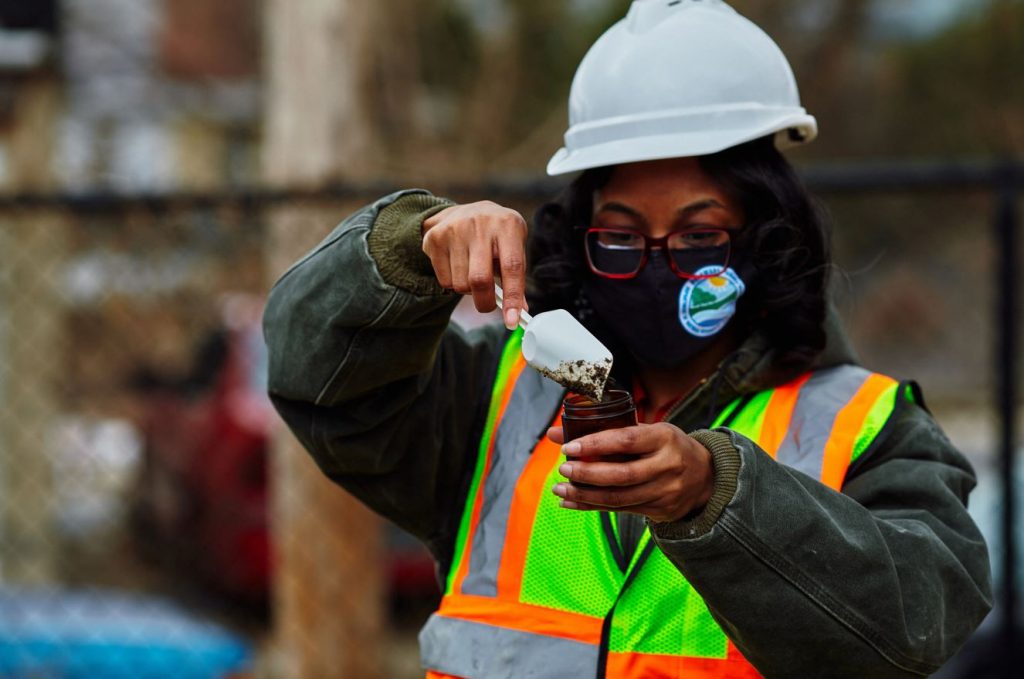
Sometimes, I participate as part of a team that visits a property and collects samples of environmental media, such as soil, groundwater and surface water. For my sites, I evaluate the laboratory data generated for the samples to determine whether long-term exposure to any substances on the property will potentially pose an unacceptable risk to human health and/or the environment.
More often, I review work plans and reports submitted to DNREC by environmental consultants. For each site, based on a comprehensive evaluation of the sample data and risk calculations, I will develop a plan of remedial action establishing the steps required to mitigate the identified unacceptable exposures and provide oversight and review to confirm the successful implementation of the measures.
I enjoy the challenge of the practical with diverse technical and logistical problem solving. But most importantly to me is that environmental engineering affords me the opportunity to make a tangible and positive lasting impact on the world. I take pride in my contribution to protect the health and welfare of future generations so that they can safely enjoy living, working or playing in that space.
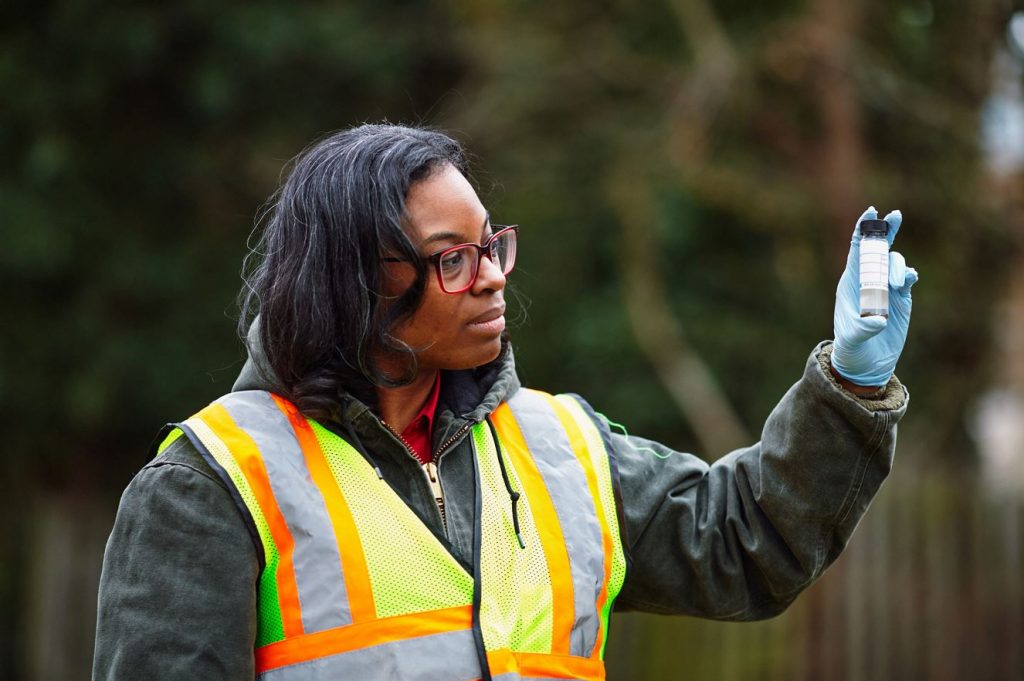
I love that each site is different and presents its own set of nuanced challenges about which to think critically and work through.
For my redevelopment sites, I’m a contributing member of the multifaceted team required for the successful completion of a construction project. I am proud of my role to ensure that human health and the environment are considered, evaluated and protected during the planning and implementation of traditional construction activities. To me, it is always fascinating to hear about the different perspectives of each business sector, municipality and governmental body with interests relevant to the project while also working with a network of professionals.
Take advantage of internship or job shadowing opportunities. Involvement in engineering organizations can help you to network and foster relationships with engineering professionals. Remember to have confidence in your abilities and make your voice heard. Engineering remains a very male-dominated field, but your knowledge, perspective and experience are as valid and valuable as the contributions of anyone else. Take and get comfortable in your seat at the table!
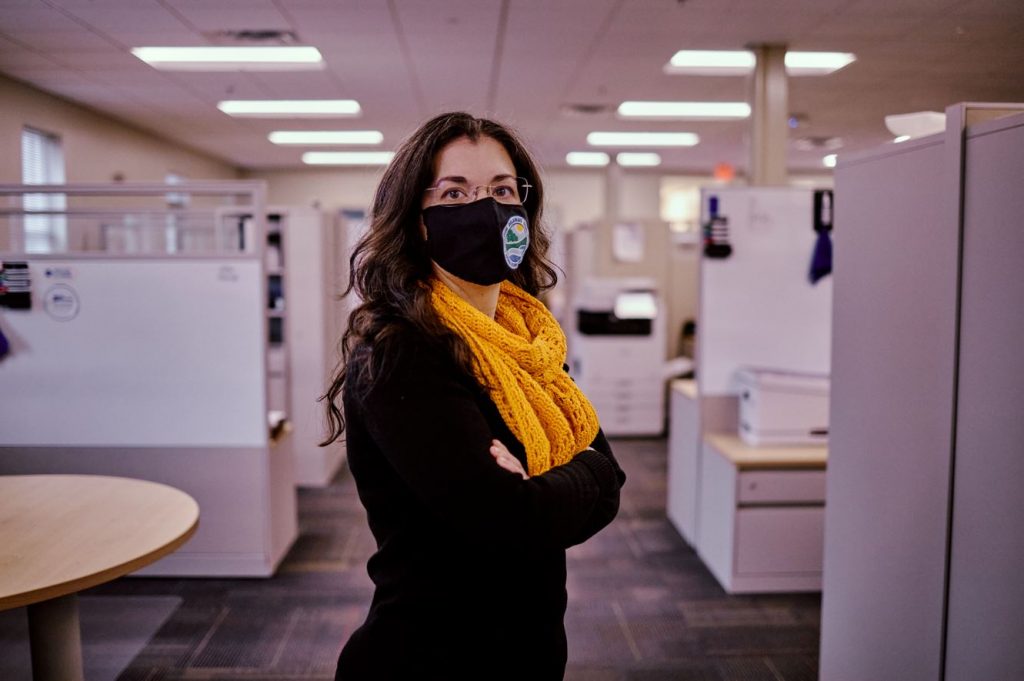

I oversee the division, which is made up of about 60 professionals. Our staff is made up of engineers, scientists, planners, technicians and support staff. Air Quality is responsible for a variety of activities including monitoring the air for pollutants, issuing alerts when we may have high levels of ozone and particulate matter, updating air quality regulations and permitting/compliance/enforcement work for emissions from all types of facilities throughout the state.
I chose engineering because I enjoyed math and science in high school. I chose the environmental field because of my interest in preserving our natural resources and creating a sustainable future.
I love solving (or making progress toward solving) hard problems. Many types of engineering deal with limited systems, however when working on environmental issues, the system involves many variables that interact with each other and that results in very challenging problems. It is satisfying when we are able to make progress toward improving peoples’ life experience and achieving sustainability.
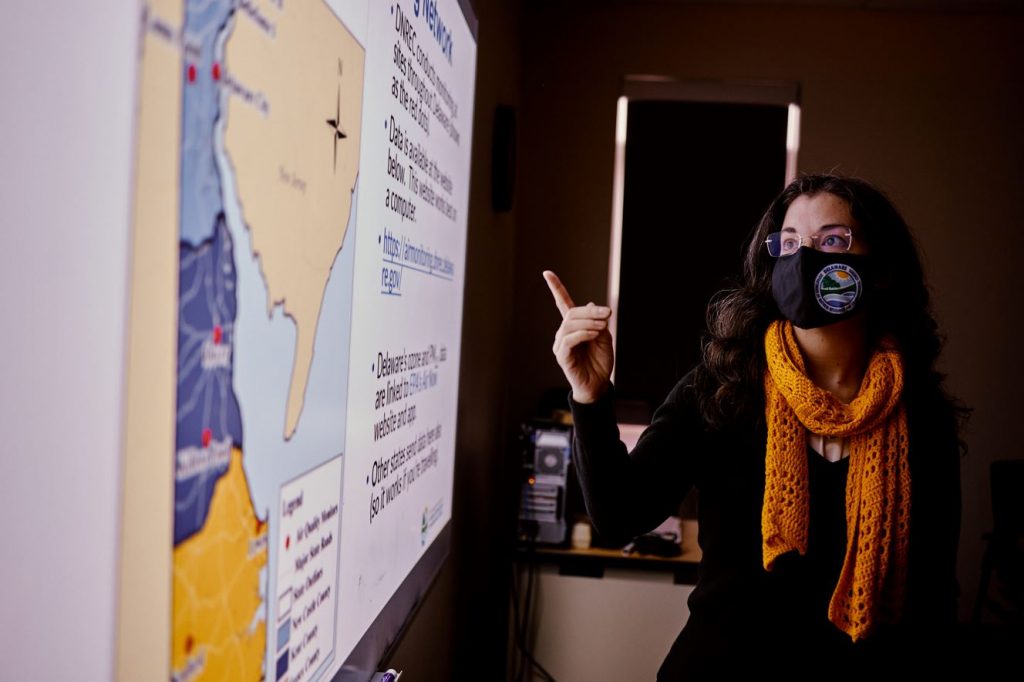
When I chose to study engineering, people gave me advice about surviving college. But, that’s just the start. I’d tell women to think of engineering beyond just your education. It is a way of approaching problems to find the best answer and there are many ways to apply that skill as a career.
Microbiologist, DNREC Division of Water

Microbiology is the study of living organisms — called microbes — that are too small to be visible with the naked eye. As a microbiologist for DNREC, my job entails overseeing the daily functions of the microbiology laboratory, performing analyses, troubleshooting, maintaining equipment, updating documents, and ensuring production of high quality data.
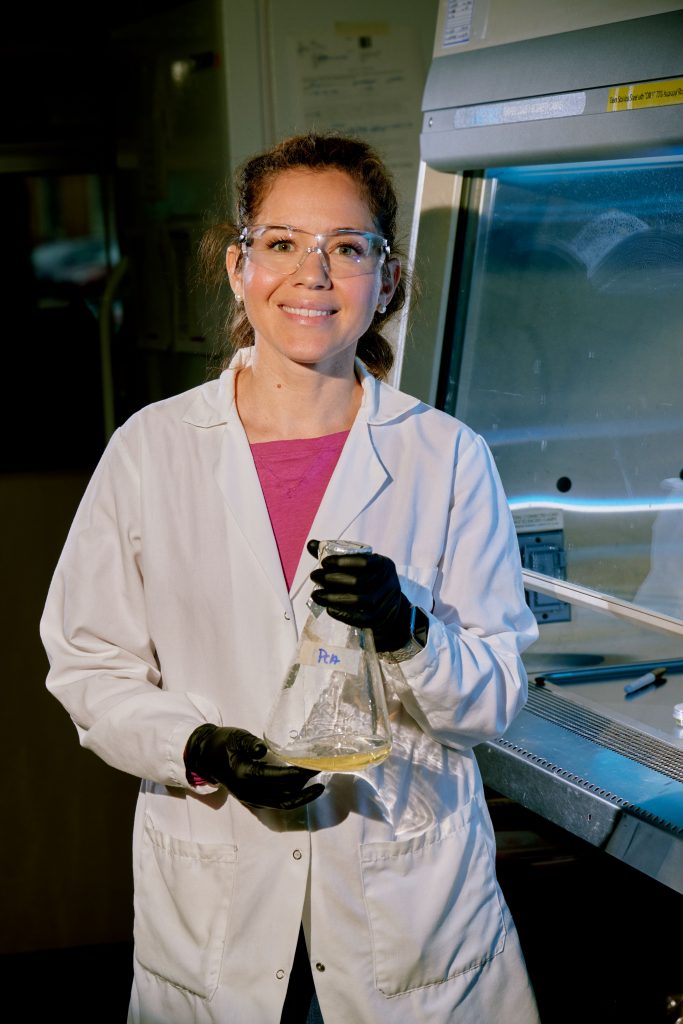
The microbiology laboratory processes around 5,000 samples collected annually throughout Delaware from various fresh and marine waterbodies including recreational waters (lakes, ponds and ocean beaches) and oyster and clam growing areas. Laboratory test results inform decision-making by other DNREC staff and aid in the Department’s mission to protect Delaware’s public health and the environment.
I chose a STEM career because I always enjoyed math and science in high school. In college, I really enjoyed the hands-on laboratory classes, and during my senior year of college, I had the opportunity to work as a student intern at the USDA Appalachian Fruit Research Station in West Virginia.
This internship gave me the Molecular Biology and Microbiology skills I needed to land my first position as a Researcher with the University of Delaware and then with the state of Delaware, where I have been working for almost 20 years in the Environmental Laboratory.
I enjoy working hands-on in the laboratory, troubleshooting, and creating new process improvements. It really takes a team to get the job accomplished when working in a laboratory and I get to work with a group of talented people every day.
Take advantage of internships to develop your hands-on laboratory skills. This will help propel you into your career and qualify you for future job opportunities. Also, network and continue to gain new skills in the ever-evolving world of laboratory science.
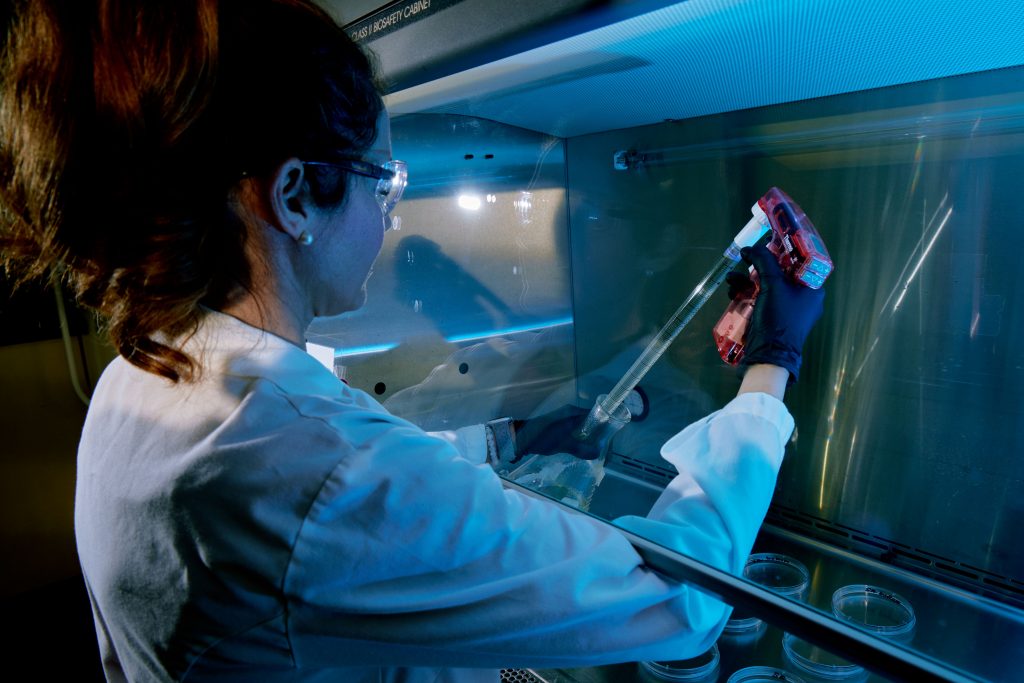
Since microbes play key roles in many biological processes, climate change, food spoilage, the cause and control of disease, and biotechnology, accruing knowledge and skills in the Microbiology field can qualify you for numerous career paths in government, academia, and the private sector.
Additionally, microbes can be put to work in many ways, including making life-saving drugs, the manufacture of biofuels, cleaning up pollution, and producing food (if you like cheese, thank a microbe). So, career opportunities are almost limitless!
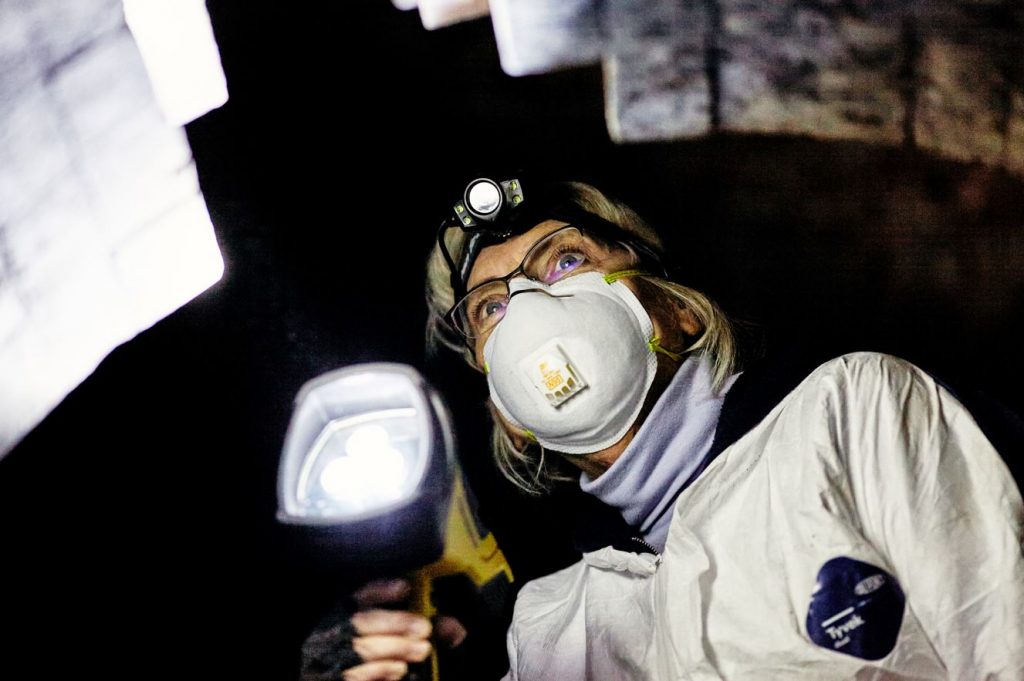
Over my 20 years with DNREC, I have managed projects with bog turtles, diamondback terrapins, frogs, salamanders, osprey and beach-nesting birds such as piping plovers and American Oyster Catchers. At this time, my primary focus is on bats and Delmarva fox squirrels.
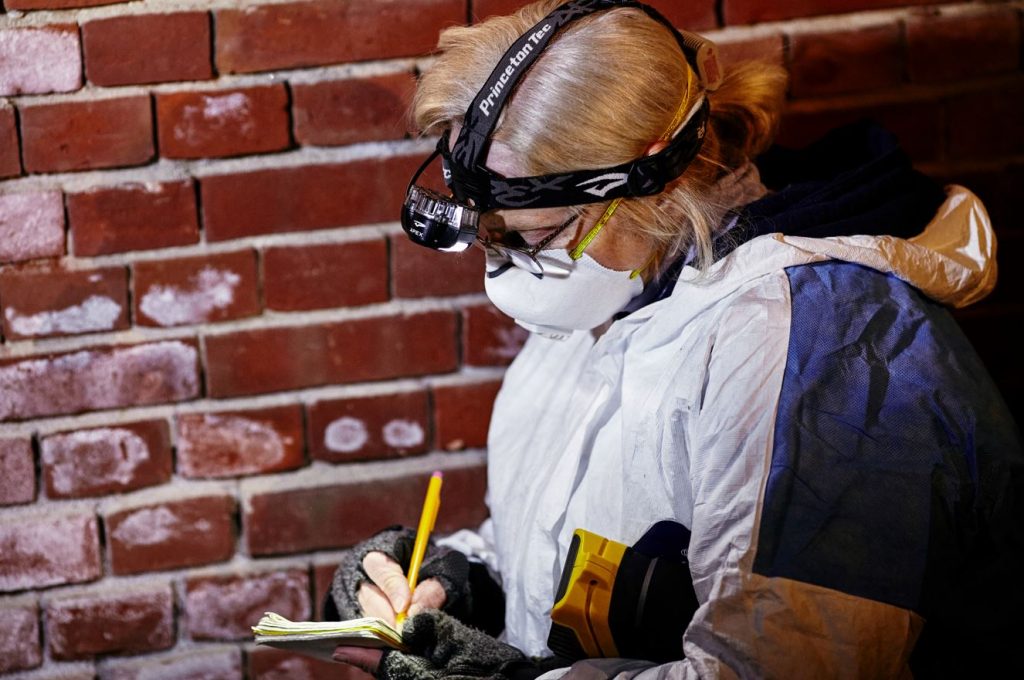
In my position, I propose and manage projects (and grants) for the species I am responsible for with the intent of collecting data and conducting actions to protect those species and secure their future in our state and beyond. Some examples include creating nesting habitat for diamondback terrapins and then monitoring to see if the turtles used the sites (they did), deploying acoustic detectors throughout the state to determine where bat species are most abundant and translocating Delmarva fox squirrels from hearty populations in Maryland to good, but unoccupied, habitat in Delaware with the goal of making them a common species here.
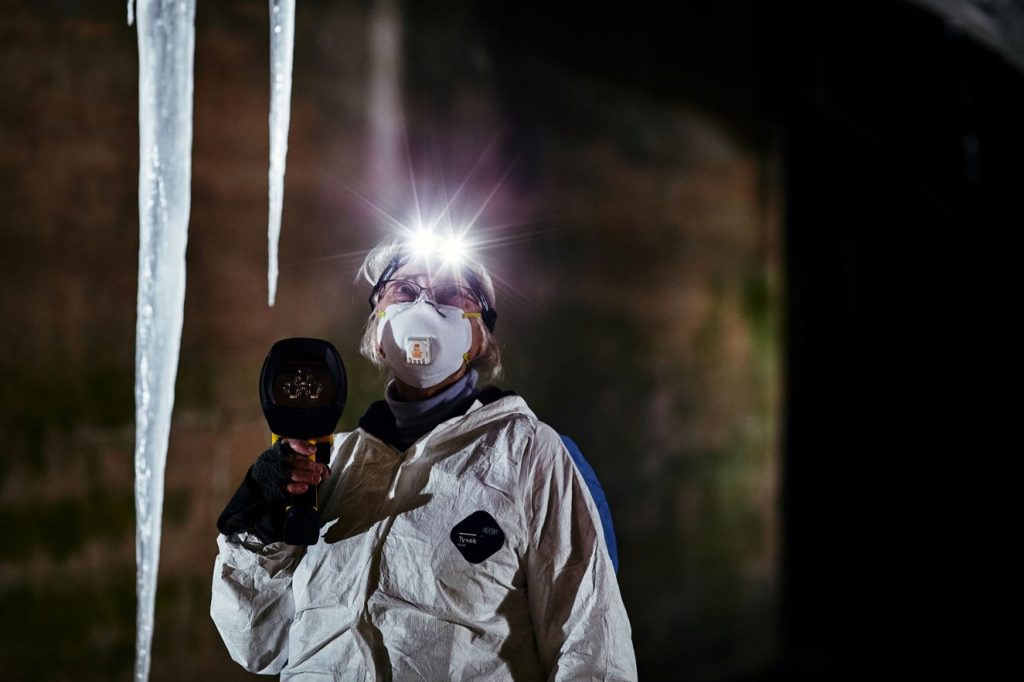
I love animals, spending time outdoors and I wanted to do something meaningful with my time.
I love working with and learning about wildlife (even though many of my projects do not include much hands-on work like you would get in a zoo or as a veterinarian) and working with so many passionate, intelligent, and dedicated people. I get to do a wide variety of projects, have a great deal of autonomy in my job and get a mix of field work and office work. No two days are alike in this position.
To try a variety of classes in college until they find the best fit, talk to people doing the jobs they think interest them and try getting summer jobs or volunteering in their field.
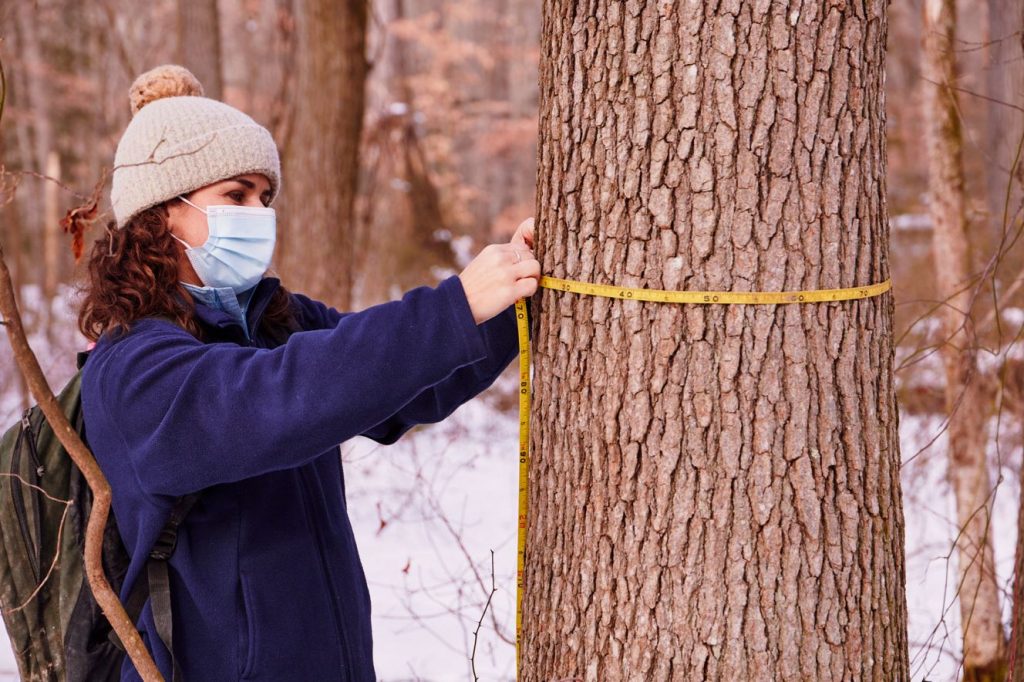
As an environmental scientist working with wetlands, my job changes every season and every year. The program I work with is science and research-based, focused mainly on tracking how many acres of wetlands Delaware has, how healthy they are, what’s hurting them, working to improve how people understand and treat wetlands and developing new ways to help wetlands do their important jobs.
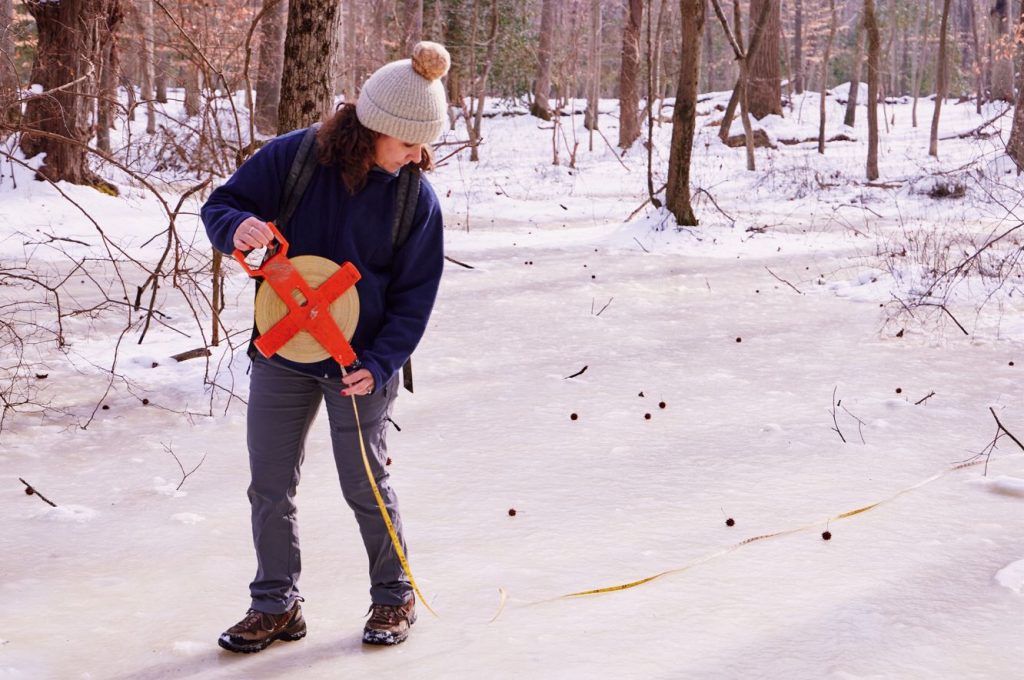
Field work is an important part of my job, mostly in the summer, which means getting muddy. It is important to take the information we collect and do something meaningful with it to help improve wetlands; writing reports, looking at maps, evaluating data and turning it into something everyone can understand and use. Education is also very important in my role, so I work at events where I talk to thousands of kids and landowners about wetlands.
I always loved animals and wildlife but knew I didn’t want to be a vet or work in a zoo. While searching for college majors I discovered wildlife management, which I studied for my bachelor’s degree, with a minor in Water Resources Management because I was already interested in wetlands. After working several internships and traveling, I realized I wanted to focus more on the habitat supporting wildlife rather than focusing on certain species, so I returned to school for a master’s degree in wildlife ecology and a thesis studying salt marsh bird populations in Maryland.
I love being part of the solution and going to bed knowing that I’m helping the environment and the people who benefit from the natural services it offers (like clean water, a peaceful place to kayak or healthy fish to catch). If I can help people stay connected to the natural world around them and see the benefit in small acts of natural resource stewardship, then I consider it a step forward. I also enjoy the variety of work that I do and the places I go. One day I’ll be on a boat in the Inland Bays and the next I’ll be wading up a stream off the Brandywine River. I enjoy putting in a hard day’s work in the field getting muddy or in the office being productive.
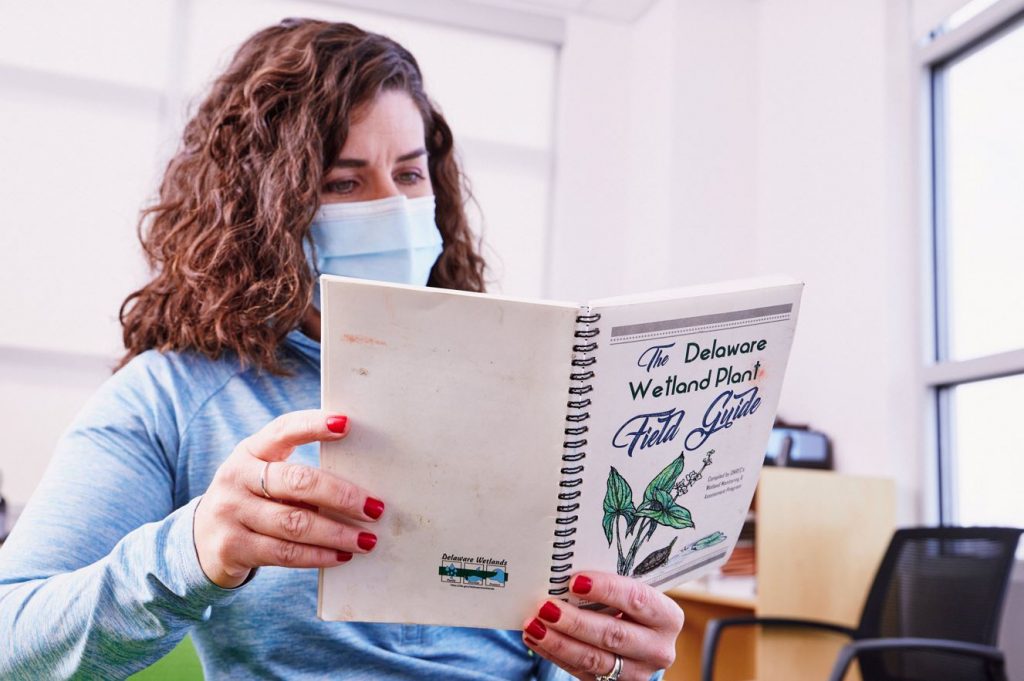
I would say don’t stress about figuring out exactly what you want to do. There are so many options out there and you shouldn’t feel pressured to know what suits you best right away. It’s ok to try things out and decide to go a slightly different direction. Higher education is definitely important but maybe you need to explore a few areas first so you don’t rush into the wrong thing.
I also recommend being strong in multiple areas, so you are trained with a trade and a skill. Lastly, know your worth and choose what makes you happy and satisfied. It is a difficult balance, but you can pursue your professional interests and goals while also living out your personal life. There are no limits; anything is possible if you want to make it happen.

I am the director of the Division of Climate, Coastal and Energy, which includes three sections: Climate and Sustainability, Coastal and Coastal Management, and Energy. I’ve been with DNREC for four and a half years.
As Delaware moves to address the challenges of climate change through building resilience and reducing greenhouse gas emissions, one of our goals is to incorporate renewable energy in an environmentally friendly and financially responsible way.
Delaware is witnessing the impacts of climate change in three main areas: sea level rise; increased temperature; and more frequent and intense storms and flooding.
So how do we protect our coastline and be resilient to all these impacts of climate change? It starts with reducing emissions, and we can do that by improved energy efficiency, transitioning to clean transportation and utilizing more renewable energy sources to power our homes and businesses.
Our Division’s three sections tie this all together, and we have an amazing group of talented individuals who take on that work daily, whether it be research undertaken at our Delaware National Estuarine Research Reserve, energy policy, looking at how policy can impact renewable energy, or building sustainable, resilient communities.
I am a chemist by trade. I’ve been in the chemical arena since 2002.
Before I started this job, I was really happy on the corporate side. Then one day my son asked me what I do for a living. I explained it to him and talked about all the things that we were doing in the chemical world, and he said, “Does your job help the world, or does it hurt the world?” and that was the shift, that was the a-ha moment for me to take a bigger step toward doing things that actually help the world. I believe I have a different perspective. My life motto is “Service is my purpose and my perspective is my gift.”

The thing that brings me joy and pleasure about this job is the direct impact that our Division has on Delawareans today, whether it is helping them lower their electricity bills through the Weatherization Assistance Program, helping businesses save money through improved energy efficiency, or the steps that we’re taking now by implementing changes to mitigate climate change impacts or improve resiliency.
Before this, I was in oil and gas, which is very much a male-dominated field. Sometimes it can be challenging to break through the existing culture in a field.
I tell a lot of young women who I mentor that their voice and their view is needed and should be valued. Oftentimes we as women may shrink because we don’t want to be “that” person, or we may feel invisible in the room, but as I say, your perspective is your gift, and a different view, a different perspective, can actually help.
It is the diversity of a group that leads innovation and change. In my job, I think it is my responsibility to make sure my voice is heard and that I give valuable input and feedback.
I believe that STEM, no matter what aspect, is an amazing field for women to get into and explore because it is so broad. Plus, the lens by which women look at and attack problems is completely different and is very much necessary.
It may seem hard at times, but anything that is worth having and worth accomplishing is hard.
